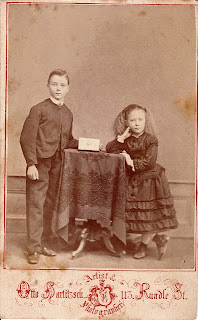This was floating around Facebook. Thank you,
Melanie!
I thank you, Lord, for fruitful fields,
for wide and healthful skies,
and for the fact not everyone
who is out at war will die;
and for the limits you have placed
on corruption and despite,
that we need only deal with them
a dozen times each night.
I thank you, Lord, for cheerful suns
that rise at every dawn,
and that my students learn to hide
the sound and sight of yawn,
that education is a joy,
filled with love and awe,
and, on those crazy grading days,
that there are murder laws.
I thank you that we live here free
in houses without bars,
that there are things that we can own,
that no one owns the stars,
that joy and virtue freely flow
without a market price
while we have markets fully full
of grain and fruit and spice.
I thank you, Lord, for politics,
for presidents and such,
that they work so hard to get their way,
that they never get it much,
who teach us that the foolish thirst
to rule and reign on high
dishonor brings upon our hearts
when to ourselves we lie.
Thank you, Lord, for infant smiles
and children bright at play,
for all the crabbed and silly souls
who annoy us every day.
(We appreciate those most, O Holy Lord,
those crosses that we bear,
and we thank you that we are not bald
from pulling out our hair.)
Thank you, Lord, for mirrors,
for when I most despise
the follies of my fellow man,
I look, and see pride's lies.
And thank you, God, for mysteries
you have left for us to solve
upon this strangely floating ball
that rotates and revolves.
Thank you for your mercy,
which saves us from the brink;
and thank you, Lord, for righteous wrath,
we need it more, I think.
Thank you for all gentle souls
who can their tempers keep;
protect them, Lord, from the rest of us,
lest we kill them in their sleep.
And for all the blissful marriages!
There are three of them, at least,
and given how hard the whole thing is,
that's quite an abundant feast.
And for all the others as well, my Lord;
they stall and sputter and spin
like well-loved cars that barely move,
they're so nicely broken-in.
And also for the ones that fail,
as they might have been worth the try
if they had words that told it straight,
and laughs, and gentle sighs,
and that they in their saddest loss
yet stand as vivid sign
that the commitment is to person there,
not a signature on a line.
Thank you, Lord, for critics
who attack with whip and flail,
and for reviewers and polemicists,
and, because of them, for hell.
And thank you, Lord, for stupid folk,
that we can clearly see
all the things that shock the mind
from which none of us are free.
And thank you for those shocking times
when pedants who lecture all
on every foolish folly
into those follies fall,
for it teaches us the wisdom
of gentleness and restraint,
lest we in turn be painted
with the brush by which we paint.
Thank you for absurdities;
they overflow the bank,
so if I but thank you for each one,
I'll never cease to thank.
And thank you for sweet irony;
it gives the wit to see
that all the things we moan about
may be thanksgiving's seed.
But most of all, I thank you, Lord,
that long before we die,
we can see ourselves with wry regard,
and laugh until we cry.















